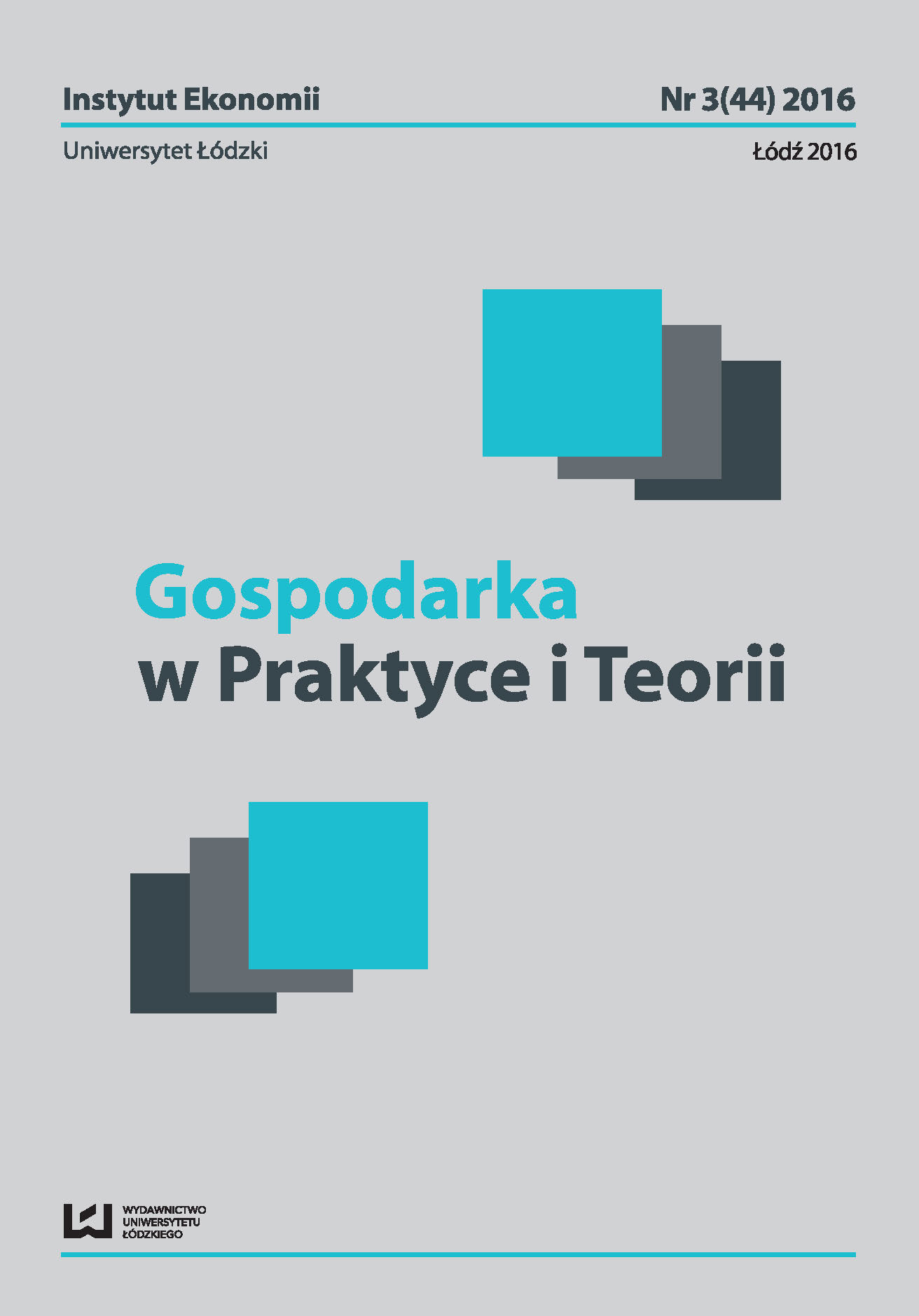Methods of scenarios development for Strategic decision making in water management sector
DOI:
https://doi.org/10.18778/1429-3730.44.02Keywords:
water management, scenarios, methods, strategyAbstract
The aim of the paper is to present the method for strategic scenarios development in the water sector (accounting for climate change) in relation to other methods of scenario development of this type, to discuss the creation of alternative scenarios, their usefulness and possible uses, as well as the strengths and weaknesses of the scenario process to support the effective use of scenario methods in the future. The needs for scenario methods and their usefulness were presented. A review and classification of scenario methods related to strategic development issues of the water sector, including climate change, based on selected projects implemented in Poland and worldwide were conducted. The process of creating scenarios was discusses. The strengths and weaknesses of the process were identified and recommendations for the effective use of scenario methods in the future were presented.
References
Alcamo J., The SAS approach: Combining qualitative and quantitative knowledge in environmental scenarios, [w:] J. Alcamo (ed.), Environmental futures: the practice of environmental scenario analysis. Developments in Integrated Environmental Assessment, vol. 2, Elsevier, Amsterdam 2009, s. 123–150.
Google Scholar
Alcamo J., Scenarios as Tools for International Environmental Assessments. Experts’ Corner Report: Prospects and Scenarios No. 5, European Environment Agency, Copenhagen 2001, Environmental Issue Report, No. 24.
Google Scholar
Delbecq, A.L., VandeVen A.H. 1971. A Group Process Model for Problem Identification and Program Planning. Journal of Applied Behavioural Science, VII (July/August, 1971), 466–491.
Google Scholar
Dubel A., Długofalowe scenariusze strategicznego rozwoju w Polsce sektorów mających wpływ na zasoby wodne, Centrum Rozwiązań Systemowych, Kraków 2015.
Google Scholar
Dubel A., Opracowanie scenariuszy rozwoju gospodarki wodnej w Polsce dla scenariuszy emisyjnych A2, B1, A1B (Ekspertyza projektu KLIMAT: „Wpływ zmian klimatu na społeczeństwo, środowisko i gospodarkę”, zadanie 3: „Zrównoważone gospodarowanie wodą, zasobami geologicznymi i leśnymi kraju”), IMGW, Kraków 2009.
Google Scholar
Dubel A. i in., Final Draft of All Causal Loop Diagrams, Deliverable 2.8 of the SCENES Project, International Institute for Applied Systems Analysis, Laxenburg 2010.
Google Scholar
GEO–4. 2007. Environment for development, UNEP 2007.
Google Scholar
GEO–5. 2012. Environment for the future we want, UNEP 2012.
Google Scholar
Giełczewski M. i in., How can we involve stakeholders in the development of water scenarios? Narew River Basin case study, „Journal of Water and Climate Change” 2011, vol. 2, no. 2–3, s. 166–179.
Google Scholar
Hagemann N. i in., Possible Futures towards a Wood-Based Bioeconomy: A Scenario Analysis for Germany, „Sustainability” 2016, vol. 8, no. 1.
Google Scholar
Kindler J., Dubel A., Wizja potrzeb wodnych polski do 2050 roku – analiza istniejących dokumentacji prognostycznych i dyskusja możliwych kierunków rozwoju (Ekspertyza projektu KLIMAT: „Wpływ zmian klimatu na społeczeństwo, środowisko i gospodarkę”, zadanie 3: „Zrównoważone gospodarowanie wodą, zasobami geologicznymi i leśnymi kraju”, IMGW, Kraków 2010.
Google Scholar
Kok K., Methods for developing multiscale participatory scenarios: insights from Southern Africa and Europe, „Ecology and Society” 2007, vol. 12.
Google Scholar
Kok K. i in., Combining participative backcasting and exploratory scenario development: Experiences from the SCENES project, „Technological Forecasting and Social Change” 2011, vol. 78, no. 5.
Google Scholar
Kok K. i in., Evaluation of existing climate and socio-economic scenarios, EU FP7 IMPRESSIONS Project Deliverable D2.1, 2015.
Google Scholar
Kok K. i in., First draft of pan-European storylines – results from the second pan-European stakeholder workshop. SCENES Deliverable 2.6, Wageningen University, Wageningen 2009.
Google Scholar
Lasut A. i in., Review of regional and pilot area consultations and consistency of scenario development approaches, SCENES Deliverable 2.3, International Institute for Applied Systems Analysis (IIASA), Laxenburg 2008.
Google Scholar
Mason-D’Croza D. i in., Multi-factor, multi-state, multi-model scenarios: Exploring food and climate futures for Southeast Asia, „Environmental Modelling & Software” 2016, vol. 83.
Google Scholar
Muskat M., Blackman D., Muskat B., Mixed Methods: Combining Expert Interviews, Cross-Impact Analysis and Scenario Development, „The Electronic Journal of Business Research Methods” 2012, vol. 10, no. 1.
Google Scholar
O’Neill, B.C. i in., The roads ahead: Narratives for shared socioeconomic pathways describing world futures in the 21st century, „Global Environ. Change” 2015, DOI: 10.1016/j.gloenvcha.2015.01.004.
Google Scholar
Piniewski M. i in., Climate Change and Agricultural Development: Adapting Polish Agriculture to Reduce Future Nutrient Loads in a Coastal Watershed, „Ambio” 2014, vol. 43, no. 5, s. 644–660.
Google Scholar
Piniewski M., Okruszko T., Acreman M.C., Environmental water quantity projections under market-driven and sustainability-driven future scenarios in the Narew basin, Poland, „Hydrological Sciences Journal” 2014, DOI: 10.1080/02626667.2014.888068.
Google Scholar
Potting J., Bakkes J. (eds.), The GEO-3 Scenarios 2002–2032: Quantification and analysis of environmental impacts. UNEP/DEWA/RS.03–4 and RIVM 402001022, UNEP/RIVM, 2004.
Google Scholar
Rounsevell M.D.A, Metzge M.J., Developing qualitative scenario storylines for environmental change assessment, „Wiley Interdisciplinary Reviews: Climate Change” 2010, vol. 1, no. 4.
Google Scholar
Sterrenberg L. i in., Transition thinking and System Innovation. Theoretical notions and application, Pioneers into Practice Mentoring Programme, Climate-KIC, Netherlands 2014.
Google Scholar
Strategiczny plan adaptacji dla sektorów i obszarów wrażliwych na zmiany klimatu do roku 2020 z perspektywą do 2030, Warszawa 2013.
Google Scholar
Vliet van M. i in., Description of methods, their goals and their possible use in SCENES scenario development, Deliverable 2.1, Wageningen University, Wageningen 2007.
Google Scholar
Zhovtonog O. i in., New planning technique to master the future of water on local and regional level in Ukraine, „Journal of Water and Climate Change” 2011, vol. 2, no. 2–3.
Google Scholar
www.eea.europa.eu/themes/scenarios/prelude (dostęp: 1.06.2016).
Google Scholar
http://fortress-project.eu (dostęp: 1.06.2016).
Google Scholar
www.gsg.org (dostęp: 1.06.2016).
Google Scholar
www.ismb.it/en/node/2034 (dostęp: 1.06.2016).
Google Scholar
www.mars-project.eu (dostęp: 1.06.2016).
Google Scholar
www.sicmaproject.eu (dostęp: 1.06.2016).
Google Scholar








